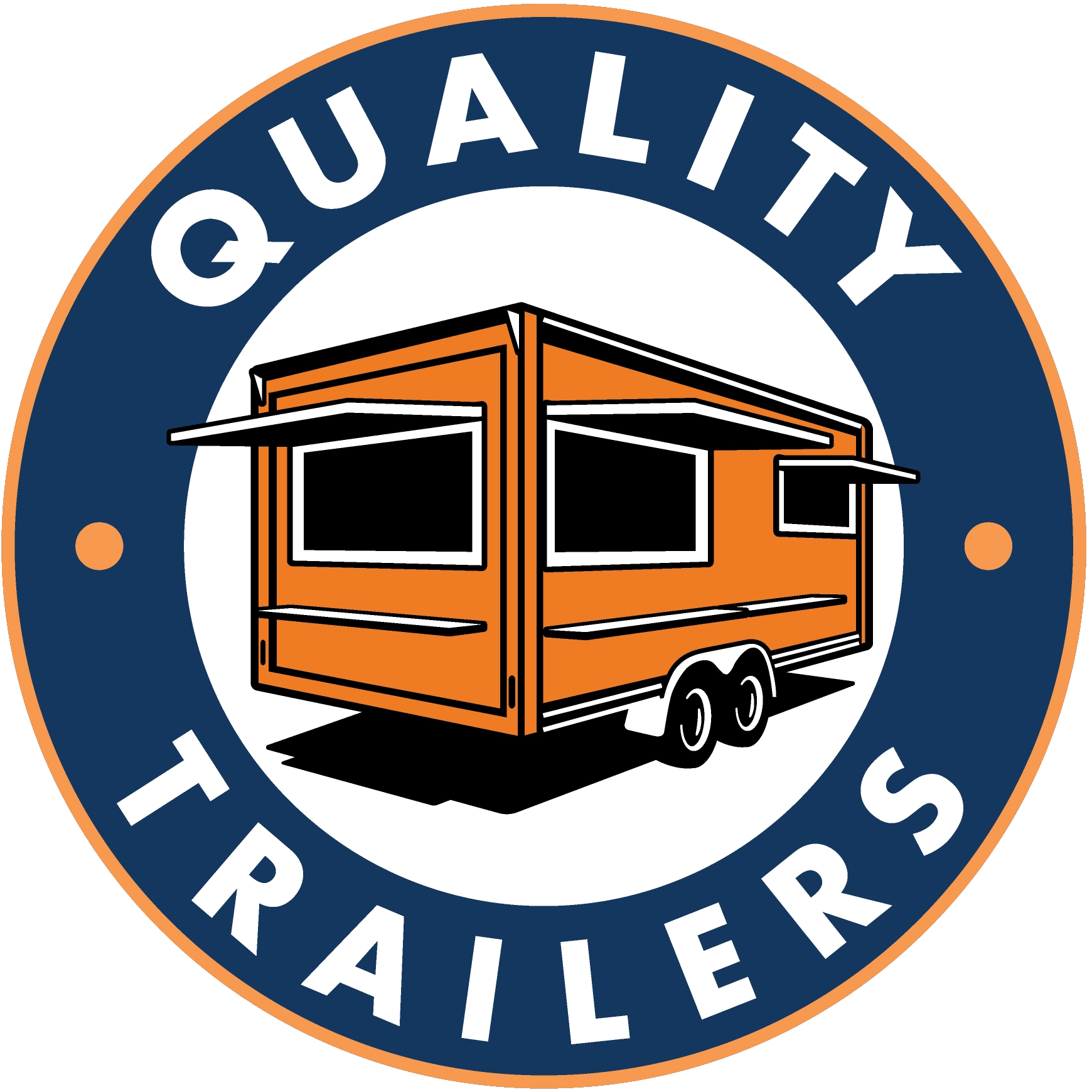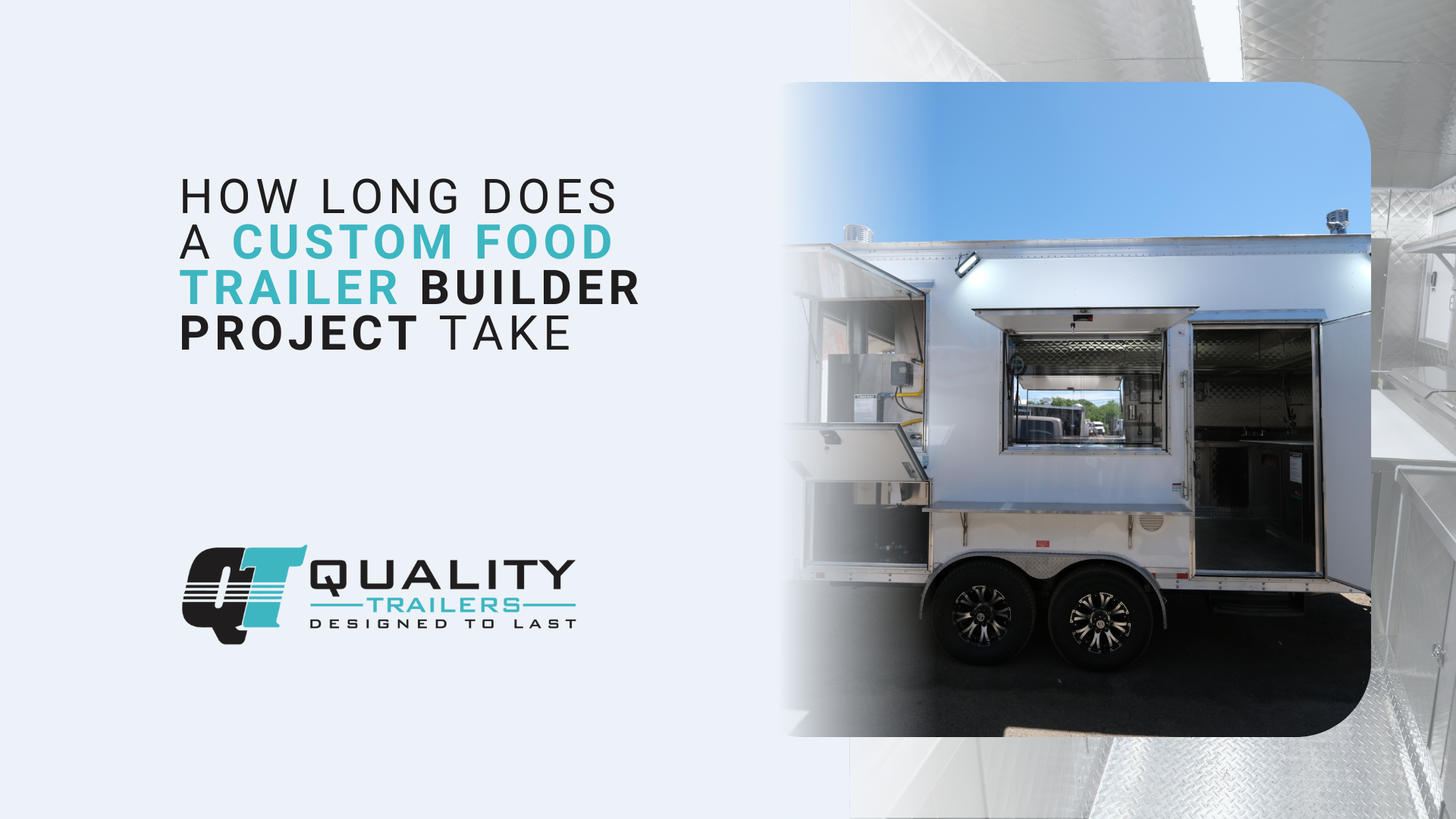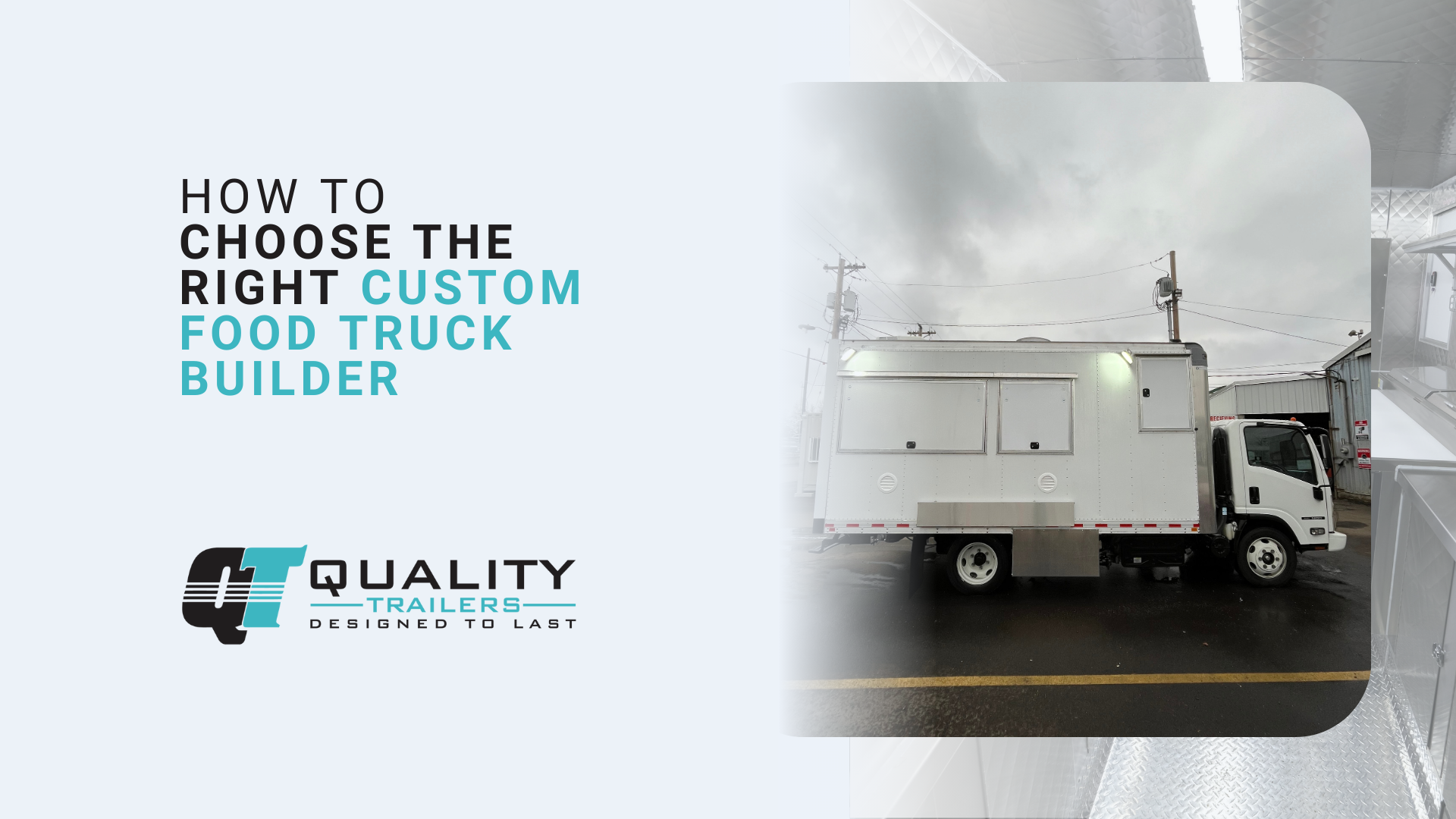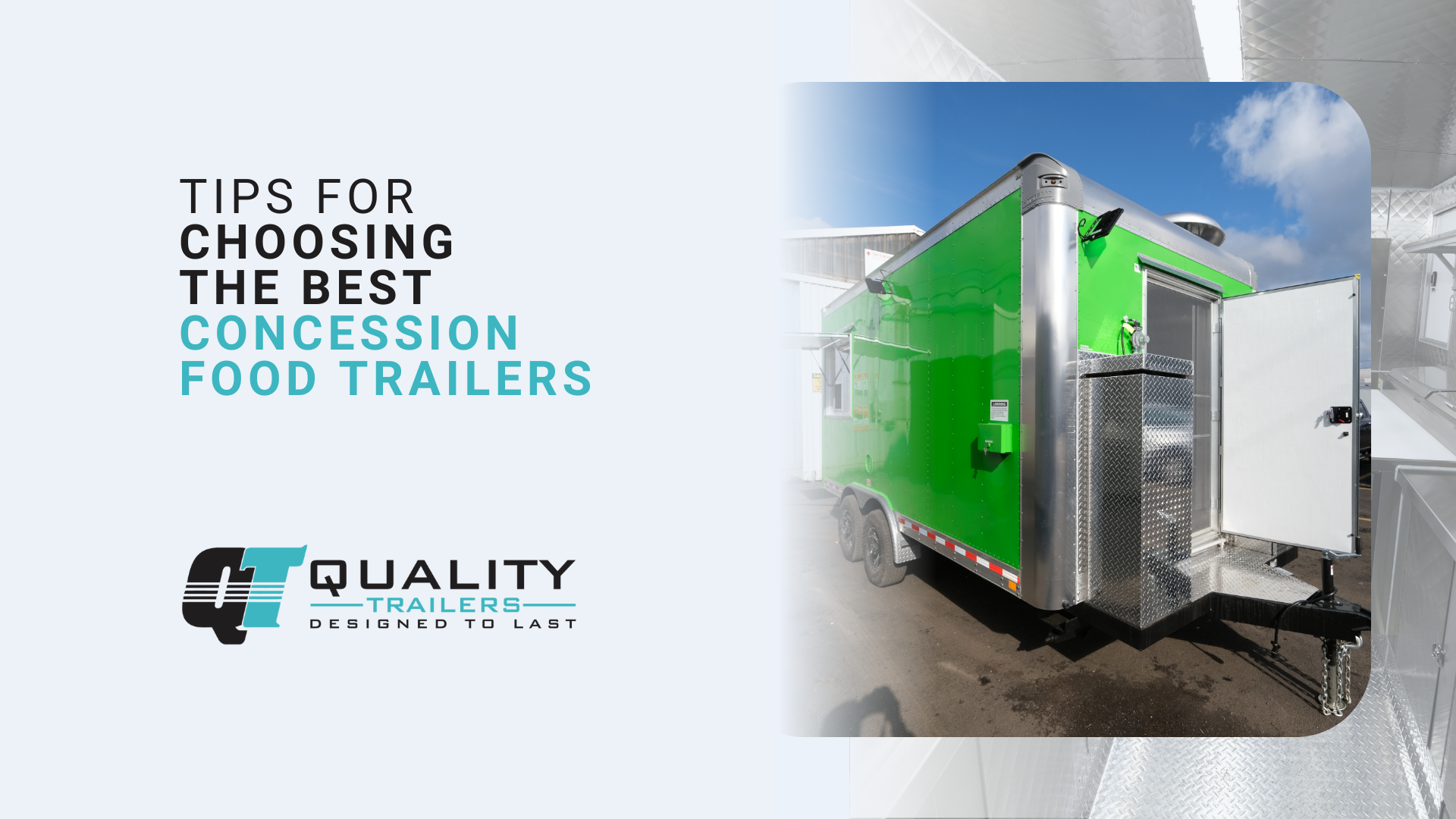Investing in quality food trailers represents a significant financial commitment that should deliver returns for many years. The difference between a trailer that operates reliably for decades versus one requiring constant repairs often comes down to initial build quality combined with proper maintenance practices. Understanding how to protect and maintain your mobile food business asset ensures maximum return on investment while minimizing unexpected downtime that disrupts operations.
The longevity of food trailers depends on multiple interconnected factors including construction materials, usage patterns, environmental conditions, and maintenance diligence. While a well-built trailer provides the foundation for durability, even the finest construction requires proper care to achieve its full lifespan potential. Developing comprehensive maintenance protocols from day one establishes habits that protect your investment and support consistent business operations throughout your trailer’s service life.
Understanding Quality Construction and Its Impact on Longevity
The foundation of trailer longevity begins with quality construction using appropriate materials and proven building techniques. Quality food trailers feature robust frame construction, proper weight distribution, and materials selected for their specific performance characteristics. Understanding these construction elements helps owners make informed maintenance decisions that complement rather than compromise the original build quality.
Structural integrity forms the basis of any durable food trailer. Premium manufacturers use heavy-gauge steel frames with professional welding at all connection points. They incorporate proper cross-bracing to handle the stresses of road travel and equipment weight. Quality construction also includes thoughtful details like sealed wire passages, reinforced mounting points for heavy equipment, and strategic placement of access panels for maintenance. Learn more about best materials for durable food trailer builds to understand what separates quality construction from budget alternatives.
Essential Maintenance Requirements for Food Service Equipment
Food service equipment represents a major investment within your trailer and requires specific maintenance protocols to ensure reliable operation. Each piece of equipment comes with manufacturer-recommended maintenance schedules that, when followed, significantly extend operational life. These maintenance requirements typically include daily cleaning procedures, weekly deep cleaning, monthly filter changes, and annual professional servicing.
Refrigeration equipment demands particular attention due to its critical role in food safety and high replacement costs. Regular condenser coil cleaning prevents overheating and compressor failure. Door gasket inspection and adjustment maintains proper temperature control while reducing energy consumption. Monitoring temperature logs helps identify performance degradation before complete failure occurs. Understanding these maintenance requirements during initial planning helps design layouts that facilitate easy access for routine service tasks.
Durability Factors in Different Operating Environments
Operating environment significantly impacts trailer durability and maintenance needs. Coastal areas present challenges from salt air corrosion, requiring more frequent washing and protective coatings. Hot climates stress refrigeration systems and may accelerate exterior finish degradation. Cold climates can cause seal shrinkage and increase structural stress from freeze-thaw cycles. Understanding your specific environmental challenges allows targeted maintenance approaches.
Urban environments present different durability factors than rural operations. City operations typically involve more frequent moves, increasing wear on hitches, tires, and suspension components. They also expose trailers to more air pollution that can accelerate exterior deterioration. Rural operations might face challenges from unpaved surfaces that increase structural stress and introduce more dirt into mechanical systems. The Portland food trailers food culture impact demonstrates how different operating environments require adapted maintenance strategies.
Establishing Preventive Maintenance Schedules
Successful preventive maintenance relies on systematic scheduling that addresses all trailer components before problems develop. Daily maintenance tasks include equipment cleaning, visual inspections, and operational checks. Weekly tasks expand to include deeper cleaning, lubrication of moving parts, and more thorough equipment testing. Monthly and quarterly schedules address less frequent but equally important maintenance needs.
Creating written maintenance schedules ensures consistency regardless of who performs the work. These schedules should include specific tasks, required supplies, and estimated time requirements. Digital maintenance tracking systems can provide reminders and document completion, creating valuable records for warranty claims and resale value documentation. Preventive maintenance costs significantly less than reactive repairs while minimizing business disruption from unexpected equipment failures.
Interior Preservation Techniques and Best Practices
Interior preservation focuses on maintaining the functional and aesthetic qualities of your mobile kitchen. Daily cleaning prevents grease buildup that can damage surfaces and create fire hazards. Using appropriate cleaning products for different materials prevents premature deterioration. Stainless steel requires different care than painted surfaces or fiberglass reinforced panels. Understanding proper cleaning techniques for each material ensures effective cleaning without causing damage.
Beyond cleaning, interior preservation includes protecting surfaces from physical damage. Installing corner guards prevents cart and equipment damage. Using cutting boards protects countertops. Anti-fatigue mats not only improve worker comfort but also protect flooring from wear patterns. Regular resealing of joints and seams prevents water intrusion that can cause hidden damage. These preservation techniques maintain both appearance and functionality throughout your trailer’s service life.
Exterior Care and Weather Protection Strategies
Exterior maintenance directly impacts both trailer longevity and business image. Regular washing removes road grime, salt, and pollutants that can damage finishes and accelerate corrosion. Waxing painted surfaces provides additional protection while maintaining appearance. Inspecting and resealing roof seams, windows, and doors prevents water intrusion that causes extensive hidden damage.
Weather protection extends beyond basic cleaning to include proactive measures against environmental damage. UV-resistant coatings protect against sun damage in hot climates. Rust inhibitors provide extra protection in humid or coastal areas. Proper storage during off-seasons, including moisture control and pest prevention, protects your investment during downtime. The Oregon custom food trailer permitting process often includes requirements for maintaining trailer appearance that align with good preservation practices.
Understanding Lifespan Expectations for Different Components
Realistic lifespan expectations help plan for eventual replacements and budget accordingly. Structural frames in quality trailers should last 20-30 years with proper care. Exterior skins typically require attention after 10-15 years, though quality materials and maintenance can extend this significantly. Flooring lifespan varies dramatically based on material choice and maintenance, ranging from 5-7 years for basic materials to 15-20 years for premium options.
Equipment lifespans vary by type and usage intensity. Commercial refrigeration typically lasts 10-15 years with proper maintenance. Cooking equipment can last 15-20 years or more with regular service. Smaller appliances and electronics generally require replacement every 5-7 years. Understanding these timelines helps anticipate capital expenditures and make informed decisions about repair versus replacement as equipment ages.
The Role of Quality Materials in Extended Service Life
Initial material selection profoundly impacts maintenance requirements and ultimate trailer lifespan. Quality materials cost more initially but deliver superior performance through extended service life and reduced maintenance needs. Stainless steel resists corrosion and maintains appearance with minimal care. Marine-grade aluminum provides excellent strength-to-weight ratios while resisting corrosion. High-grade insulation maintains efficiency while resisting moisture and pest intrusion.
Material quality extends beyond visible components to include hidden elements like wiring, plumbing, and structural fasteners. Quality food trailers use components rated for commercial mobile applications rather than residential alternatives. This includes vibration-resistant plumbing fittings, automotive-grade wiring, and corrosion-resistant fasteners. These premium materials reduce failure rates and simplify maintenance throughout the trailer’s life. Understanding how to choose the right food trailer for your business needs includes evaluating material quality for long-term value.
Developing Wear Resistance Through Protective Measures
Proactive wear resistance strategies significantly extend component lifespans while maintaining appearance. High-traffic areas benefit from protective coverings like diamond plate or rubberized coatings. Door frames and corners need guards against cart damage. Equipment mounting systems should include vibration dampening to reduce stress during transport. These protective measures cost far less than repairing damage after it occurs.
Wear resistance also involves operational procedures that minimize unnecessary stress. Proper loading ensures weight distribution that prevents frame stress. Careful driving reduces vibration and impact forces. Regular lubrication of hinges, latches, and slides prevents accelerated wear. Training staff on proper equipment use prevents damage from misuse. These behavioral aspects of wear resistance prove as important as physical protective measures.
Seasonal Maintenance Considerations
Seasonal changes require adapted maintenance approaches to protect your trailer from weather-related damage. Spring maintenance focuses on addressing any winter damage, including thorough cleaning, seal inspection, and equipment servicing before busy season begins. Summer priorities include cooling system optimization, increased attention to refrigeration maintenance, and protection against heat-related deterioration.
Fall maintenance prepares trailers for winter conditions or storage. This includes thorough cleaning, system winterization if applicable, and addressing any wear from the busy season. Winter maintenance varies based on whether trailers operate year-round or enter storage. Operating trailers need freeze protection and increased attention to heating systems. Stored trailers require proper preparation including moisture control and pest prevention. The Portland custom food trailer design trends often incorporate features that simplify seasonal maintenance tasks.
Critical System Maintenance Priorities
Certain trailer systems require priority attention due to their critical nature or high replacement costs. Propane systems need regular inspection for leaks, proper regulator function, and tank certification compliance. Electrical systems require periodic inspection for loose connections, proper grounding, and adequate circuit protection. Plumbing systems need freeze protection, regular sanitization, and inspection for leaks that can cause hidden damage.
Fire suppression systems represent both a safety critical and regulatory required maintenance priority. Regular professional inspections ensure proper function when needed while maintaining compliance. Hood and ventilation systems require regular cleaning to prevent fire hazards and maintain efficiency. These critical systems often have specific regulatory requirements for maintenance documentation, making proper record-keeping essential for compliance demonstration.
Cost-Effective Maintenance Strategies
Balancing maintenance needs with budget constraints requires strategic approaches that maximize protection while minimizing costs. Bulk purchasing of common maintenance supplies reduces per-unit costs. Establishing relationships with equipment service providers can yield preferential scheduling and pricing. Training staff to perform basic maintenance tasks reduces service calls while ensuring timely attention to minor issues.
Predictive maintenance approaches use equipment monitoring and performance tracking to identify service needs before failures occur. This might include tracking refrigeration temperature patterns, monitoring equipment amp draws, or using oil analysis for motors and compressors. While requiring initial investment in monitoring capabilities, predictive maintenance typically reduces overall maintenance costs by preventing major failures. Understanding how to start a mobile food trailer business from scratch includes budgeting for ongoing maintenance costs.
Documentation and Record Keeping for Maximum Value
Comprehensive maintenance documentation serves multiple purposes beyond simple record keeping. Detailed records support warranty claims by demonstrating proper maintenance. They provide valuable history when troubleshooting problems. Complete maintenance documentation significantly enhances resale value by proving proper care. Digital record keeping systems simplify documentation while ensuring records remain accessible and organized.
Maintenance records should include dates, specific tasks performed, parts replaced, and who performed the work. Photos documenting condition over time provide valuable visual records. Equipment performance logs help identify degradation patterns. Cost tracking enables accurate budgeting for future maintenance needs. This documentation proves invaluable for insurance claims, regulatory compliance demonstration, and business valuation purposes.
Professional Service vs. DIY Maintenance
Determining which maintenance tasks to perform internally versus contracting professionally requires balancing expertise, equipment, and opportunity costs. Basic cleaning, visual inspections, and simple adjustments typically fall within operator capabilities. More complex tasks involving specialized tools, safety risks, or regulatory requirements often warrant professional service. The key lies in honestly assessing capabilities and understanding when professional expertise protects your investment.
Professional service providers offer advantages beyond technical expertise. They maintain proper insurance, understand regulatory requirements, and can often identify developing issues before they become serious problems. Regular professional inspections complement operator maintenance efforts. Establishing relationships with qualified service providers ensures timely support when needed. The FDA’s food safety modernization act includes provisions affecting equipment maintenance in food service operations.
Upgrade Strategies to Extend Trailer Life
Strategic upgrades can significantly extend trailer lifespan while improving operational efficiency. Energy-efficient equipment replacements reduce operating costs while updating aging systems. LED lighting upgrades improve visibility while reducing heat generation and power consumption. Modern insulation materials can be retrofitted to improve climate control and reduce energy costs. These upgrades often pay for themselves through operational savings while extending overall trailer viability.
Technology upgrades deserve particular consideration as they can modernize operations without major structural changes. Modern POS systems improve efficiency and provide valuable data. Updated ventilation controls can significantly reduce energy consumption. Solar panel additions offset power costs while demonstrating environmental responsibility. When planned strategically, upgrades can extend competitive lifespan far beyond original expectations. Explore the future of mobile dining custom food trucks for upgrade ideas that enhance longevity.
Common Maintenance Mistakes to Avoid
Learning from common maintenance mistakes helps protect your investment while avoiding costly repairs. Neglecting hidden areas like underbody components and roof seams leads to extensive damage before problems become visible. Using incorrect cleaning products can damage surfaces and void warranties. Deferring maintenance to save money typically results in much higher repair costs and extended downtime.
- Ignoring manufacturer maintenance schedules, leading to premature equipment failure and voided warranties • Using residential-grade replacement parts instead of commercial mobile-rated components • Failing to address small leaks promptly, resulting in extensive water damage and mold growth • Overlooking tire and wheel bearing maintenance, risking dangerous failures and roadside breakdowns • Skipping documentation, making warranty claims difficult and reducing resale value
Building a Maintenance Culture Within Your Operation
Successful long-term maintenance requires building a culture where every team member understands their role in protecting equipment. This includes proper operation techniques, immediate reporting of issues, and participation in daily cleaning routines. Regular training reinforces proper procedures while explaining how maintenance activities protect everyone’s livelihood through reliable equipment operation.
Creating maintenance checklists for different positions ensures comprehensive coverage without duplication. Incentivizing proper maintenance through recognition or rewards encourages participation. Making maintenance tasks as convenient as possible through proper supply placement and tool availability removes barriers to compliance. When maintenance becomes part of operational culture rather than an added burden, compliance improves dramatically.
Environmental Sustainability Through Proper Maintenance
Proper maintenance contributes to environmental sustainability by extending equipment life, reducing waste, and improving efficiency. Well-maintained equipment operates more efficiently, reducing energy consumption and emissions. Preventing premature replacement reduces manufacturing demands and landfill waste. Using environmentally friendly cleaning products and proper waste disposal protects local environments.
Regular maintenance also prevents environmental incidents like refrigerant leaks or grease spills. Proper disposal of maintenance waste like used oil and filters prevents environmental contamination. Many maintenance activities that protect your investment also demonstrate environmental responsibility, potentially attracting environmentally conscious customers. The Oregon food trailer marketing strategies often highlight sustainable practices enabled by proper maintenance.
Insurance Considerations and Maintenance Requirements
Insurance coverage often includes specific maintenance requirements that must be met to maintain coverage validity. Regular professional inspections of critical systems like fire suppression may be mandatory. Documentation requirements vary by insurer but typically include proof of regular maintenance and prompt repair of identified issues. Understanding your policy’s maintenance requirements prevents coverage disputes when claims arise.
Some insurers offer premium discounts for proactive maintenance programs or additional safety features. Working with insurance providers who understand food trailer operations ensures appropriate coverage and reasonable maintenance requirements. Regular maintenance documentation can also support claims by demonstrating proper care and eliminating negligence as a contributing factor. Discover 15 things to know before buying a mobile food truck including insurance considerations.
Planning for End-of-Life and Replacement Decisions
Even with excellent maintenance, trailers eventually reach the end of economical service life. Planning for this eventuality includes understanding when repair costs exceed replacement value. Tracking maintenance costs over time reveals trends indicating approaching end-of-life. Having replacement funding strategies prevents business disruption when replacement becomes necessary.
End-of-life planning also includes maximizing residual value through proper maintenance documentation and strategic timing of replacement. Well-maintained trailers with complete records command premium resale prices. Understanding market cycles helps time replacements for maximum value recovery. Some operators maintain older trailers for backup or seasonal use, extending value beyond primary service life. Learn how to start a food business with a custom food trailer including planning for equipment lifecycle management.
Why Choose Quality Trailers Inc for Long-Lasting Food Trailers
When investing in quality food trailers designed for exceptional longevity, Quality Trailers Inc brings over 23 years of manufacturing expertise focused on durability and maintainability. Our family-owned business has specialized in food trailers since 2010, developing construction techniques and material selections that extend service life while simplifying maintenance requirements. Every trailer we build incorporates accessibility features that make routine maintenance convenient and effective. Visit our homepage to see examples of trailers we’ve built for long-term success.
Our commitment to quality materials and construction techniques creates trailers that maintain their value and performance for decades. We use only commercial-grade components rated for mobile food service applications. Our innovative approaches, including solar panel integration introduced in 2016, demonstrate our commitment to helping operators reduce long-term operating costs. Our CAD design process ensures maintenance access points are strategically placed for convenience. Request a custom quote to discover how our quality construction reduces lifetime ownership costs.
At Quality Trailers Inc, we understand that trailer longevity depends on both initial quality and ongoing support. That’s why we provide comprehensive maintenance guidance, detailed documentation, and continuing technical support throughout your trailer’s life. Our extensive experience means we can advise on preservation techniques specific to your operating environment and business model. We take pride in seeing trailers we built years ago still operating profitably with proper maintenance. Contact us today to learn how we build profitable food businesses with quality trailers engineered for exceptional longevity and minimal maintenance requirements.
Frequently Asked Questions
What is the typical lifespan of a well-maintained food trailer?
Quality food trailers with proper maintenance typically operate profitably for 15-20 years, with many exceeding 25 years of service. The frame and structure can last 30+ years, though equipment replacements and updates become necessary over time. Consistent maintenance, quality initial construction, and appropriate upgrades all contribute to maximizing service life.
How much should I budget annually for food trailer maintenance?
Annual maintenance costs typically range from 3-5% of the trailer’s initial value, though this varies based on usage intensity and operating conditions. This includes routine maintenance supplies, professional service calls, and minor repairs. Setting aside an additional 2-3% for eventual equipment replacement creates a comprehensive maintenance budget that prevents financial surprises.
What are the most critical maintenance tasks for food trailer longevity?
The most critical maintenance tasks include regular roof and seal inspections to prevent water damage, consistent cleaning to prevent grease buildup and corrosion, proper winterization in cold climates, and adherence to equipment manufacturer maintenance schedules. Regular professional inspections of propane, electrical, and fire suppression systems ensure safety while preventing costly failures.
How does climate affect food trailer maintenance requirements?
Climate significantly impacts maintenance needs. Coastal areas require more frequent washing and corrosion protection. Hot climates demand extra attention to refrigeration systems and UV protection. Cold climates need freeze protection and seal maintenance. Humid environments require vigilant moisture control. Adapting maintenance schedules to local climate conditions prevents accelerated deterioration.
When should I consider replacing versus repairing food trailer equipment?
Consider replacement when repair costs exceed 50% of replacement value, when parts become unavailable, or when efficiency improvements in new equipment provide significant operational savings. Factors include equipment age, availability of qualified service, impact on operations during repair, and energy efficiency gains from newer models. Document equipment performance trends to make informed replacement decisions.



